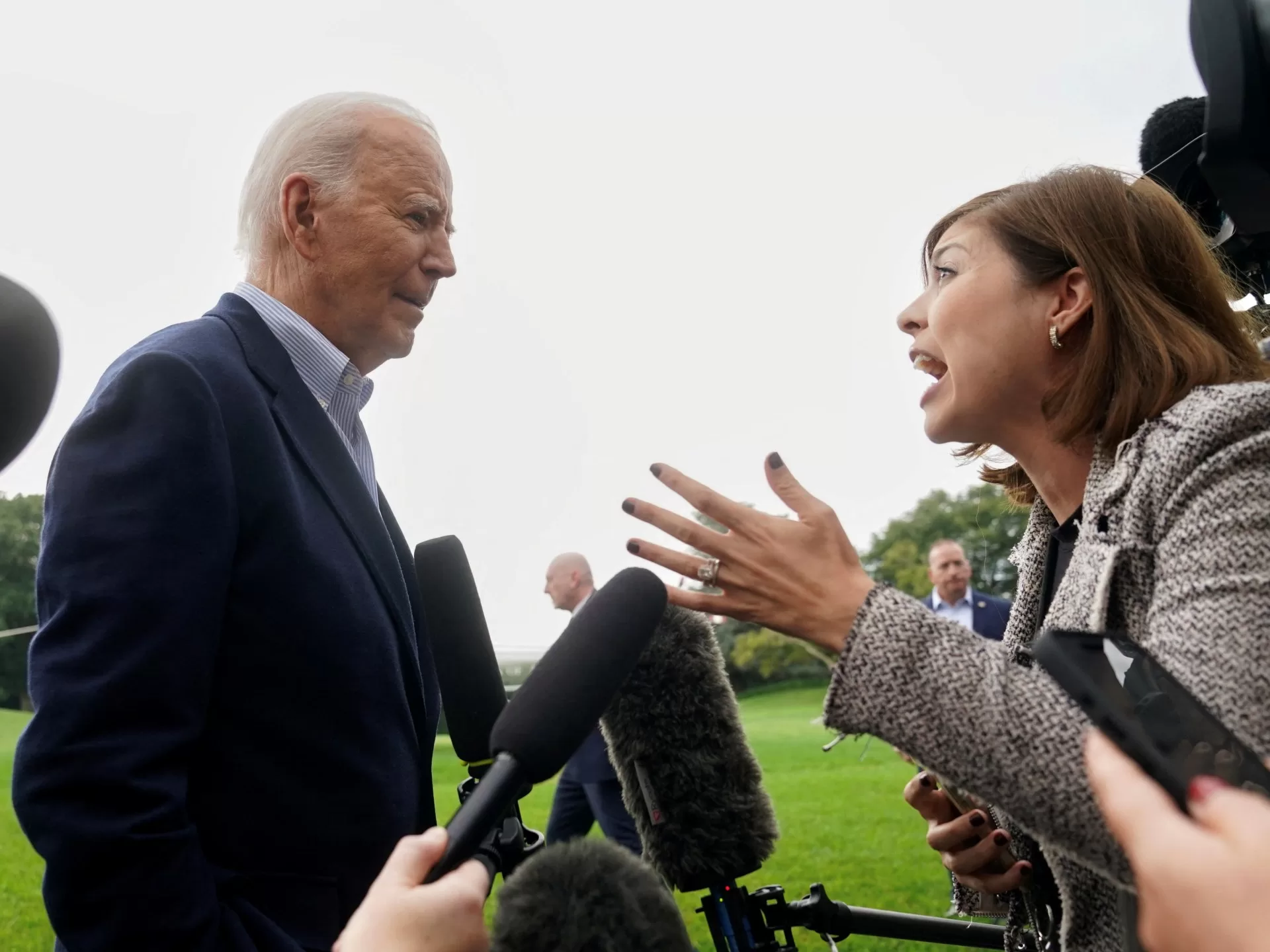Biden said Israel’s response to Iran would not come on Thursday, but US officials declined to offer more detail.
US officials say they have been having “a number of conversations” with their Israeli counterparts in the aftermath of Iran’s missile attack on Tuesday, but declined to say when or how Israel planned to respond, and whether the US had drawn any red lines.
President Joe Biden told reporters that he did not believe a widely expected Israeli strike against Iran would come on Thursday.
“First of all, we don’t ‘allow’ Israel, we advise Israel,” Biden told reporters at the White House on Thursday when asked if he would allow Israel to retaliate against Iran. “And there is nothing going to happen today.”
At a press briefing, US State Department spokesman Matthew Miller declined to offer more specifics about Israel’s plans vis-a-vis Iran or Lebanon, where Israeli forces have continued to bomb civilian areas and where Israeli soldiers invading Lebanese territory have for a second day come face to face with Hezbollah.
“We are having ongoing conversations with them about the options that they are considering, but I am going to keep everything about those conversations private,” Miller said.
Pressed on the possibility that Israel might strike nuclear sites in Iran, Miller reiterated the president’s position. “We do not believe they should strike nuclear sites,” he said, but declined to say whether the US was exerting its influence to avoid the possibility.
The Biden administration has publically said that it wants to avoid an escalation of conflict in the region — but with one month left before the US presidential election, it’s also been wary of using a heavy hand.
US officials are reportedly working behind closed doors to “limit” Israel’s response, with members of the administration calling for additional sanctions on Iran even as Republican members of the US Congress seek to see the administration embrace a more “hawkish” response to Iran, said Al Jazeera’s Kimberly Halkett.
Iran says it exerted restraint earlier this year after Israel assassinated Hamas leader Ismail Haniyeh in Tehran, in response to requests to not impede Gaza ceasefire talks. Iranian officials have since made clear that they felt “duped” by the international community and that their patience is running out.
Israel has continued its war on Gaza, where it has now killed more than 41,700 Palestinians. It has also widened the conflict to Lebanon, where more than 1,900 have been killed, including Hezbollah leader and close Iranian ally Hassan Nasrallah.
On Thursday, Iran warned the US via an intermediary that an Israeli attack against Iran would meet an “unconventional response”.
“From the very early days that these tensions started, Iran’s stance was that there is no interest at all in dragging the entire West Asia into a full-fledged war scenario,” Iranian analyst Tohid Asadi told Al Jazeera on Thursday. Still, he warned Iran was now sending a double message.
“On the one hand they’re putting forth the claim they are not interested in war, they’re not warmongers, and at the same time, they’re saying ‘We’re not afraid of war’,” said Asadi. “The message clearly here from Tehran these days is that it’s not going to be patient anymore because this patience has got a limit.”
US officials’ vagueness on the matter is unlikely to ease growing fears of a broader regional conflict.
“The US is the adult in the room now. They can help deescalate this conflict, as they did once in April when Iran & Israel had a tit for tat episode,” Iranian-American political analyst Negar Mortazavi wrote on X. “Or they can let this escalate into an even bigger war. This is a major crossroad.”
“All eyes on the White House as Iran awaits a response by Israel,” she added. “How hard Israel will attack Iran depends on Washington.”
